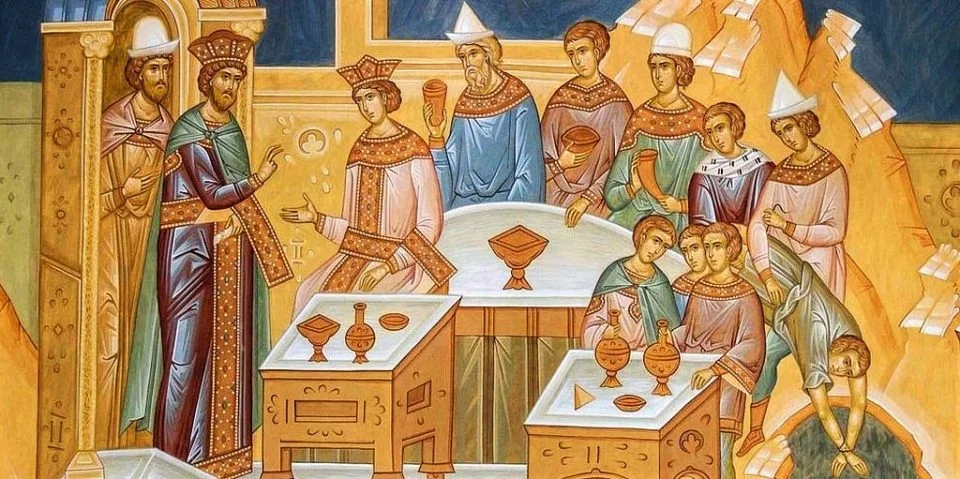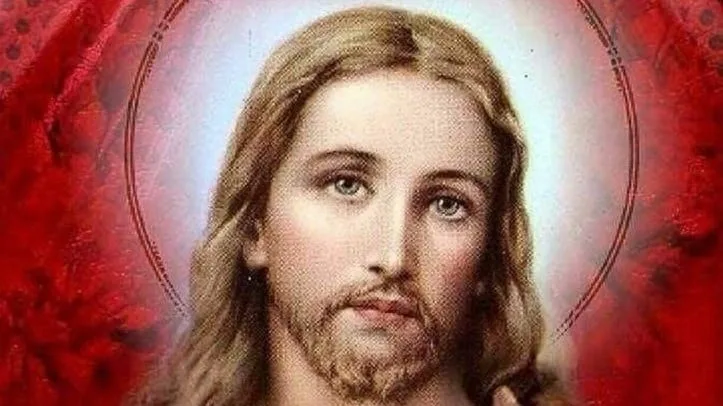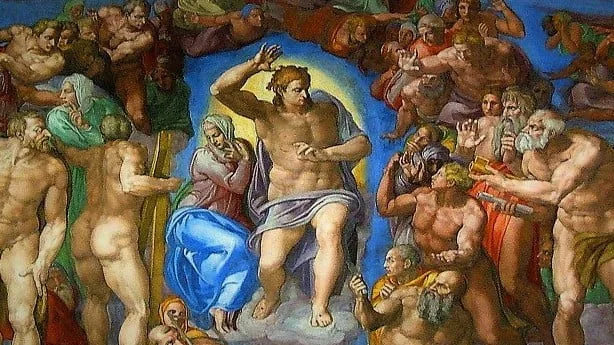28TH SUNDAY IN ORDINARY TIME YEAR A MASS, GOSPEL AND COMMENTARY: THE PARABLE OF THE WEDDING FEAST (Mt 22:1–14).

The Parable of the Wedding Feast
Jesus again in reply spoke to the chief priests and elders of the people in parables, saying, “The kingdom of heaven may be likened to a king who gave a wedding feast for his son. He dispatched his servants to summon the invited guests to the feast, but they refused to come. A second time he sent other servants, saying, ‘Tell those invited: “Behold, I have prepared my banquet, my calves and fattened cattle are killed, and everything is ready; come to the feast.”’ Some ignored the invitation and went away, one to his farm, another to his business. The rest laid hold of his servants, mistreated them, and killed them. The king was enraged and sent his troops, destroyed those murderers, and burned their city. Then he said to his servants, ‘The feast is ready, but those who were invited were not worthy to come. Go out, therefore, into the main roads and invite to the feast whomever you find.’ The servants went out into the streets and gathered all they found, bad and good alike, and the hall was filled with guests. But when the king came in to meet the guests, he saw a man there not dressed in a wedding garment. The king said to him, ‘My friend, how is it that you came in here without a wedding garment?’ But he was reduced to silence. Then the king said to his attendants, ‘Bind his hands and feet, and cast him into the darkness outside, where there will be wailing and grinding of teeth.’ Many are invited, but few are chosen.”
Gospel Commentary from the Navarre Bible, Commentary to the Gospel of St. Matthew (with permission)
- 1-14 SUMMARY OF IDEAS
- In this parable Jesus reveals how intensely God the Father desires the salvation of all men — the banquet is the Kingdom of heaven — and the mysterious malice that lies in willingly rejecting the invitation to attend, a malice so vicious that it merits eternal punishment. No human arguments make any sense that go against God’s call to conversion and acceptance of faith and its consequences.
- The Fathers see in the first invitees the Jewish people: in salvation history God addresses himself first to the Israelites and then to all the Gentiles (Acts 13:46).
- Indifference and hostility cause the Israelites to reject God’s loving call and therefore to suffer condemnation. But the Gentiles also need to respond faithfully to the call they have received; otherwise they will suffer the fate of being cast “into outer darkness”.
- “The marriage”, says St Gregory the Great (In Evangelia homiliae, 36) “is the wedding of Christ and his Church, and the garment is the virtue of charity: a person who goes into the feast without a wedding garment is someone who believes in the Church but does not have charity”.
- The wedding garment signifies the dispositions a person needs for entering the Kingdom of heaven. Even though he belong to the Church, if he does not have these dispositions he will be condemned on the day when God judges all mankind. These dispositions essentially mean responding to grace.
- 13 The Second Vatican Council reminds us of the doctrine of the “last things”, one aspect of which is covered in this verse.
- Referring to the eschatological dimension of the Church, the Council recalls our Lord’s warning about being on the watch against the wiles of the devil, in order to resist in the evil day (cf. Eph 6:11-13). “Since we know neither the day nor the hour, we should follow the advice of the Lord and watch constantly so that, when the single course of our earthly life is completed (cf. Heb 9:27), we may merit to enter with him into the marriage feast and be numbered among the blessed (cf. Mt 25:31-46) and not, like the wicked and slothful servants (cf. Mt 25:26), be ordered to depart into the eternal fire (cf. Mt 25:41), into the outer darkness where ‘men will weep and gnash their teeth’” (Lumen gentzum, 48).
- 14 These words in no way conflict with God’s will that all should be saved (cf. I Tim 2:4).
- In his love for men, Christ patiently seeks the conversion of every single soul, going as far as to die on the cross (cf. Mt 23:37; Lk 15:4-7).
- St Paul teaches this when he says that Christ loved us and “gave himself up for us, a fragrant offering and sacrifice to God” (Eph 5:2). Each of us can assert with the Apostle that Christ “loved me and gave himself for me” (Gal 2:20).
- However, God in his infinite wisdom respects man’s freedom: man is free to reject grace (cf. Mt 7:13-14).
VIDEO COMMENTARY ON TODAY’S 1ST READING
TOPIC: DO YOU MAKE A LOT OF EXCUSES?
Oct. 11, 2020: HOLY MASS


